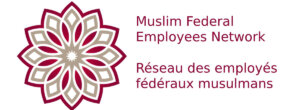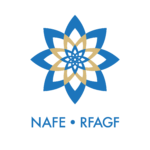In September 2023, APEX hired their first Chief Equity, Diversity and Inclusion (EDI) Officer to support APEX in implementing inclusive policies and programs.
Despite the proliferation of EDI initiatives in both the public and private sectors since 2020, many organizations have struggled to demonstrate progress with clear and tangible goals. APEX recognizes the importance of the ability to measure progress, to be transparent in our efforts and to be accountable to our stakeholders in advancing EDI. As a result, APEX developed a Maturity Model for Reconciliation, Equity, Accessibility, Diversity and Inclusion (READI).
Maturity Models are best practice to articulate what on organization hopes to accomplish and what that looks like each step of the way. APEX considered EDI Maturity Models from leading practitioners, private and public institutions and non-governmental organizations and developed an APEX specific Model, tailored to our unique role as a non-for-profit national professional organization.
To confirm we are on the right path, we consulted with employee networks representing equity seeking communities (Black, Indigenous, Asian, Muslim, Jewish, 2SLGBTQIA+, Persons with Disabilities, Neurodiverse), many of which have Executive networks within them. We recognized that Reconciliation with Indigenous peoples and Accessibility are distinct aspects of EDI, and thus incorporated the R and A into the Model and acronym, expanding it to READI.
The final Maturity Model includes 9 components:
– Organizational Commitment: An articulated vision and commitment to institutionalize a READI future through leadership and accountability to stakeholders
– READI Training and Cultural Competency: READI and cultural competency learning and growth for the organization’s staff, management and board.
– Data: The organization routinely collects and/or analyzes disaggregated data for all programmatic and operational work and uses the information in planning and decision-making.
– Engagement: Mutually beneficial, accountable and equitable partnerships exist with diverse organizations representing communities experiencing disparities.
– Diversity: A workforce composition that all stakeholders, especially historically marginalized populations, trust to be representative and accountable.
– Equity: The measured experience of individual, interpersonal, and organizational success and well-being across all stakeholder populations and the absence of mistreatment or discrimination.
– Inclusion: The achievement of felt and perceived environment in an organizational body where all stakeholder populations trust to be respectful and accountable.
– Accessibility: The organization values recognizing and removing factors in the design of products, programs, services, or environments which create barriers for people who experience disabilities.
– Reconciliation: The organization recognizes the importance and practices building a renewed relationship with the Indigenous peoples of Canada by recognizing rights, respect and partnership.
The detailed Maturity Model includes a scale to measure progress against each component, ranging from “Not Yet Started” through to “Leading Practice”. The Maturity Model includes practices and opportunities that apply to various aspects of APEX- including our Board of Directors, APEX staff, our organizational operations, the physical workplace, and programs and services in support of our members. Ongoing stakeholder engagement will inform specific year to year priorities for APEX and how we should strive to operate in the long term.










